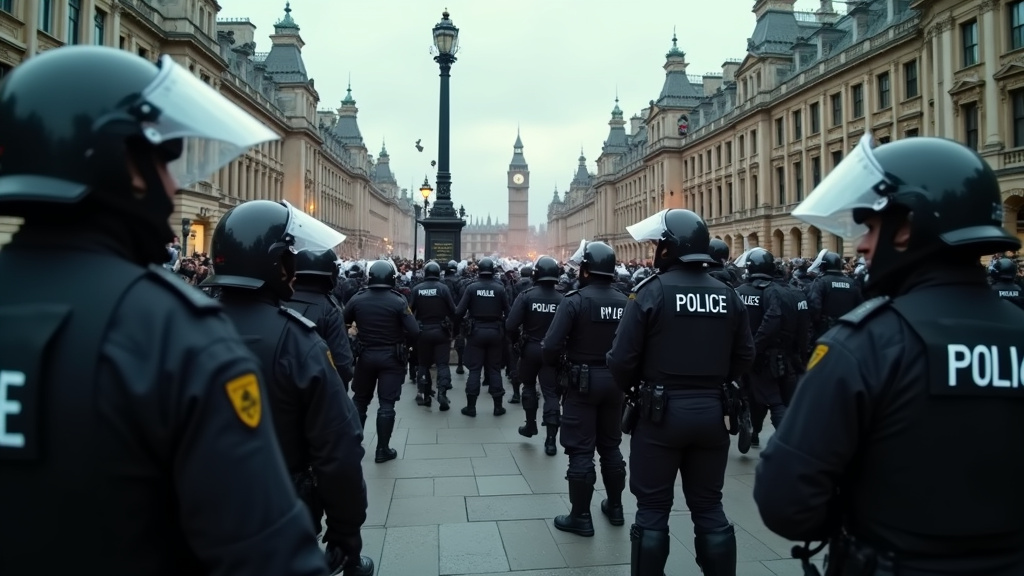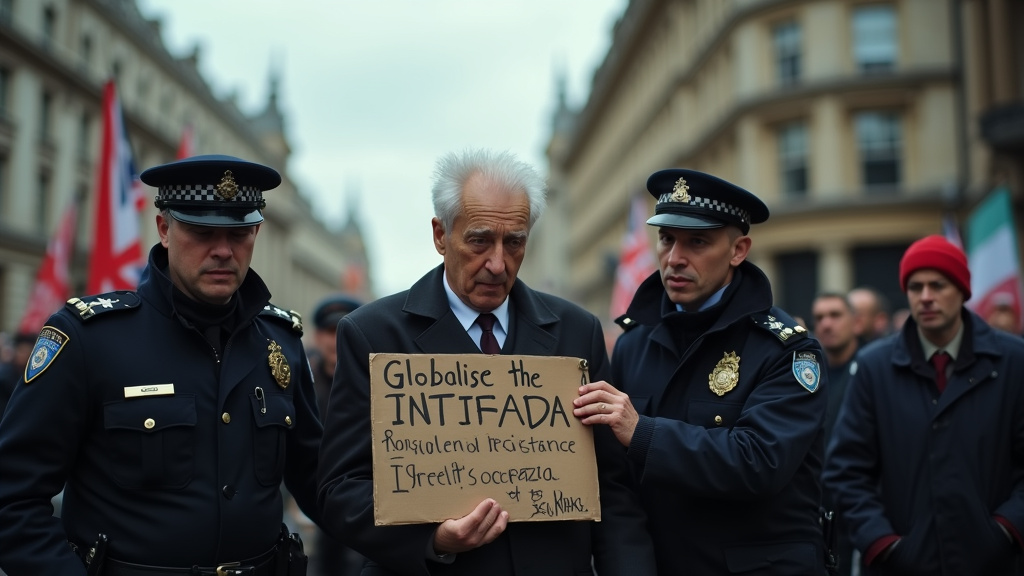Hundreds of demonstrators were arrested in London on Saturday as protests erupted against the United Kingdom government’s recent decision to ban the activist group Palestine Action, classifying it as a terrorist organization. Police reported detaining over 400 people at Parliament Square during the demonstrations, where protesters voiced strong opposition to the ban and its implications.
Escalating Tensions and Mass Arrests
The significant number of arrests underscores the intensity of public feeling surrounding the ban and the broader conflict in the Middle East. The protests in the capital were not isolated events; they were part of a wave of trending global demonstrations against Israel’s declared intentions for a siege of Gaza City and the worsening humanitarian crisis unfolding in the region. Protesters expressed solidarity with the Palestinian population and condemned actions they view as disproportionate.
Background to the Palestine Action Ban
The ban on Palestine Action follows a series of controversial actions undertaken by the group. Notably, activists have been linked to incidents where they targeted and damaged tanker planes at a Royal Air Force base. These actions were explicitly carried out to protest what the group and its supporters describe as Britain’s complicity and support for the ongoing war in Gaza. The government’s move to proscribe the group marks a significant escalation in its approach to activist groups seen as disruptive.
Ongoing Demonstrations and Future Plans
The situation remains fluid, with further demonstrations anticipated. Groups have announced plans for additional protests on Sunday, with a march scheduled to proceed to Downing Street. The primary objective of these planned demonstrations is to demand the immediate release of hostages reportedly held in Gaza. This highlights the multifaceted nature of the protests, which encompass opposition to government policy, condemnation of the conflict, and calls for humanitarian action and the release of captives.
The events of Saturday have brought the UK’s stance on the Israeli-Palestinian conflict and its approach to domestic activism into sharp focus. As the situation develops, the arrests and ongoing protests signal a period of heightened political and social engagement surrounding these critical issues, making it a significant piece of news both domestically and internationally. The scale of the arrests suggests a substantial mobilization of dissent, reflecting deep divisions on the government’s handling of both the ban and the wider geopolitical situation.





